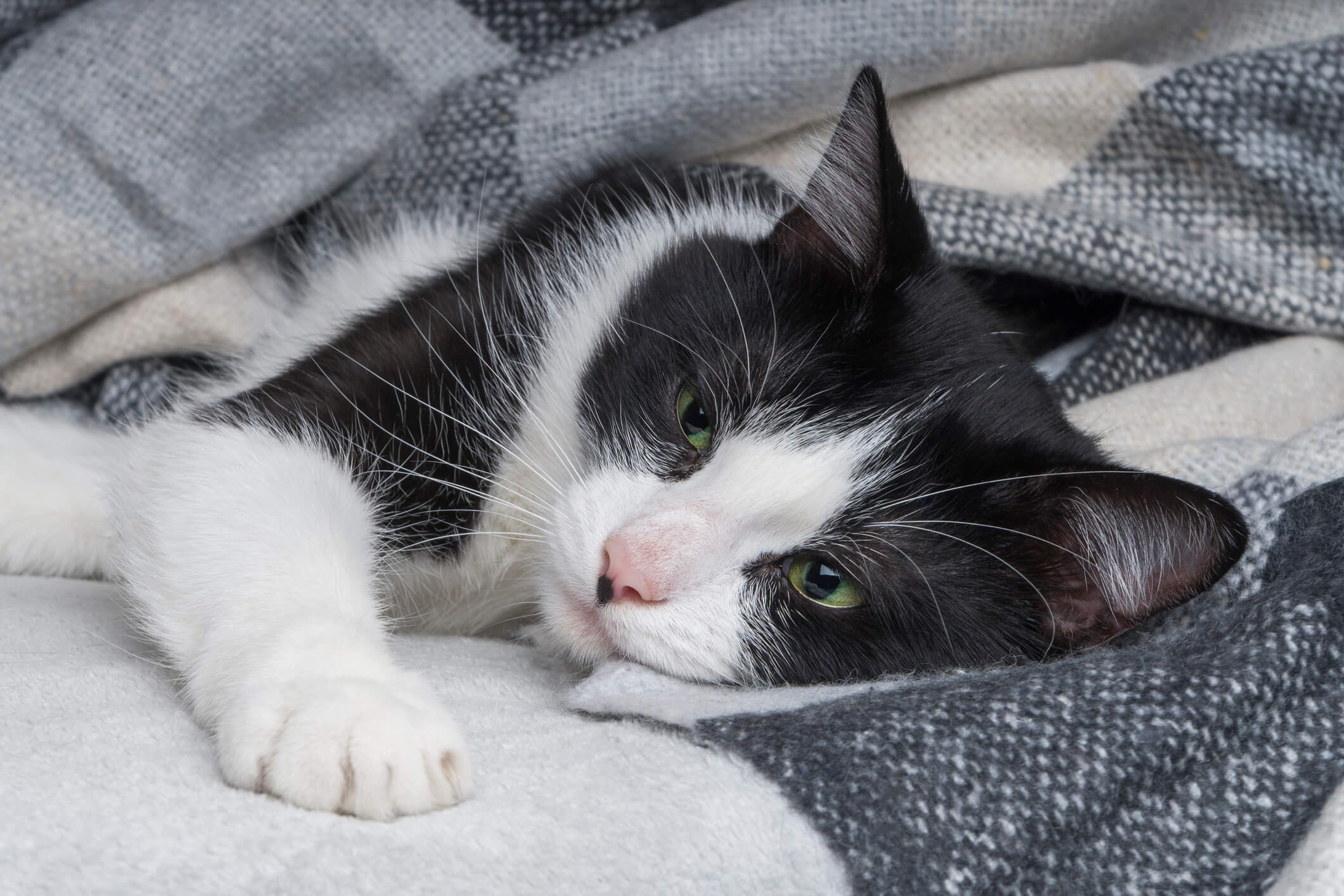
Your Overtired Cat Could Be Suffering from This Ailment
The term “cat nap” came into being for a good reason. Kitties love to snooze on the couch all day, getting up only to munch on kibble, play with toys, or chase the occasional mouse. Unfortunately, many cat owners can’t tell the difference between a cat nap and lethargy. That, along with other symptoms, could signal your cat has been living with an ailment called anemia all this time.
Anemia refers to a decreased in the number of red blood cells, which are needed to carry oxygen and nutrients throughout your pet’s body. Without this critical function, cats become tired and weak. Anemia is a sure sign that something is wrong with your kitty’s health.
Types of anemia
Cats can experience one of two forms of anemia—regenerative or non-regenerative. Regenerative anemia means the cat’s body is capable of producing an adequate number of healthy red blood cells, but that an underlying issue has disrupted cell production or destroyed blood cells. Causes of regenerative anemia are usually short-term and severe, such as rapid blood loss, toxin ingestion, infections or a parasite infestation. In most cases, prescription medications will address the cause of regenerative anemia and restore the cat’s normal red blood cell count, as long as it is caught early enough.
Non-regenerative anemia occurs when your cat is no longer capable of producing red blood cells. The causes are usually age-related, chronic diseases that develop over a long period of time. Chronic diseases originate in parts of the body that are responsible for red blood cell production such as the kidneys and bone marrow. Treatments for non-regenerative anemia typically include a range of medications, chemotherapy or blood transfusions, depending on the cause.
Other symptoms of anemia
Symptoms might vary depending on whether your cat has regenerative or non-regenerative anemia. Some of the more obvious signs include a quickened heartbeat and rapid breathing, even if the cat is lying down. Red blood cells carry essential nutrients throughout the body, and a low cell count forces the heart to work overtime in order for every organ to receive enough oxygen.
Rapid breathing and heartbeat are usually accompanied by lethargy. This symptom is more difficult to notice because cats love to nap all day and bathe in the sun. Cat owners should be concerned when their normally energetic cat won’t get up from the couch or ignores their attempts to initiate play time. Lethargic cats also experience a loss of appetite, so pay close attention if their food bowl goes untouched.
This handful of anemia symptoms are easy to spot, while others might require help from a veterinarian. One quick way to check for anemia is by inspecting your cat’s gum line. No matter the cause of anemia, cats suffering from a low red blood cell count will likely have pale gums. However, a series of blood tests and biopsies are necessary to detect internal symptoms like a heart murmur, enlarged spleen or ruptured tumor.

What causes anemia?
Anemia is not necessarily a disease itself but a telltale sign of many potential underlying problems. Regenerative anemia, in particular, often stems from severe blood loss, either from a major injury or internal bleeding. Cat owners will know right away if bleeding from an external injury is the cause of anemia. Severe bleeding can also occur with stomach ulcers or a ruptured tumor. Kittens are especially susceptible to blood loss by way of parasites.
Your cat might also be at risk for a range of hemolytic anemias. This regenerative from of anemia means some underlying cause is destroying the red blood cells. Immune-mediated hemolytic anemia occurs when your cat’s body creates antibodies designed to attack its own red blood cells. The bone marrow is perfectly capable of reproducing blood cells, only to get destroyed by an overactive immune system.
However, anemia is most commonly seen in cats due to a number of chronic diseases. The kidneys play a huge role in red blood cell production; they release a hormone called erythropoietin that tells the bone marrow to start making new cells. Cats who suffer from kidney disease will likely exhibit signs of non-regenerative anemia.
Can anemia be treated?
Your veterinarian will recommend a treatment plan depending on the cause of your cat’s anemia. Rapid blood loss calls for immediate treatment such as a blood transfusion. Blood loss due to a parasite is often treated with both a transfusion and an at-home dewormer. The vet might also have you administer flea and tick medicine as a preventative measure.
Medications that suppress the immune system can prevent antibodies from attacking new red blood cells. In other cases, a special diet or hormone supplement can help the kidneys fulfill their role in red blood cell production. Your vet will prescribe an antibiotic if a bacterial infection triggered the anemia.
The most important thing to remember is that anemia is always a sign of a bigger problem. Keep your kitty healthy by watching out for the symptoms and speak with a vet if anything seems out of the ordinary. Regular examinations will catch symptoms early on and get your cat the treatment they need right away.


